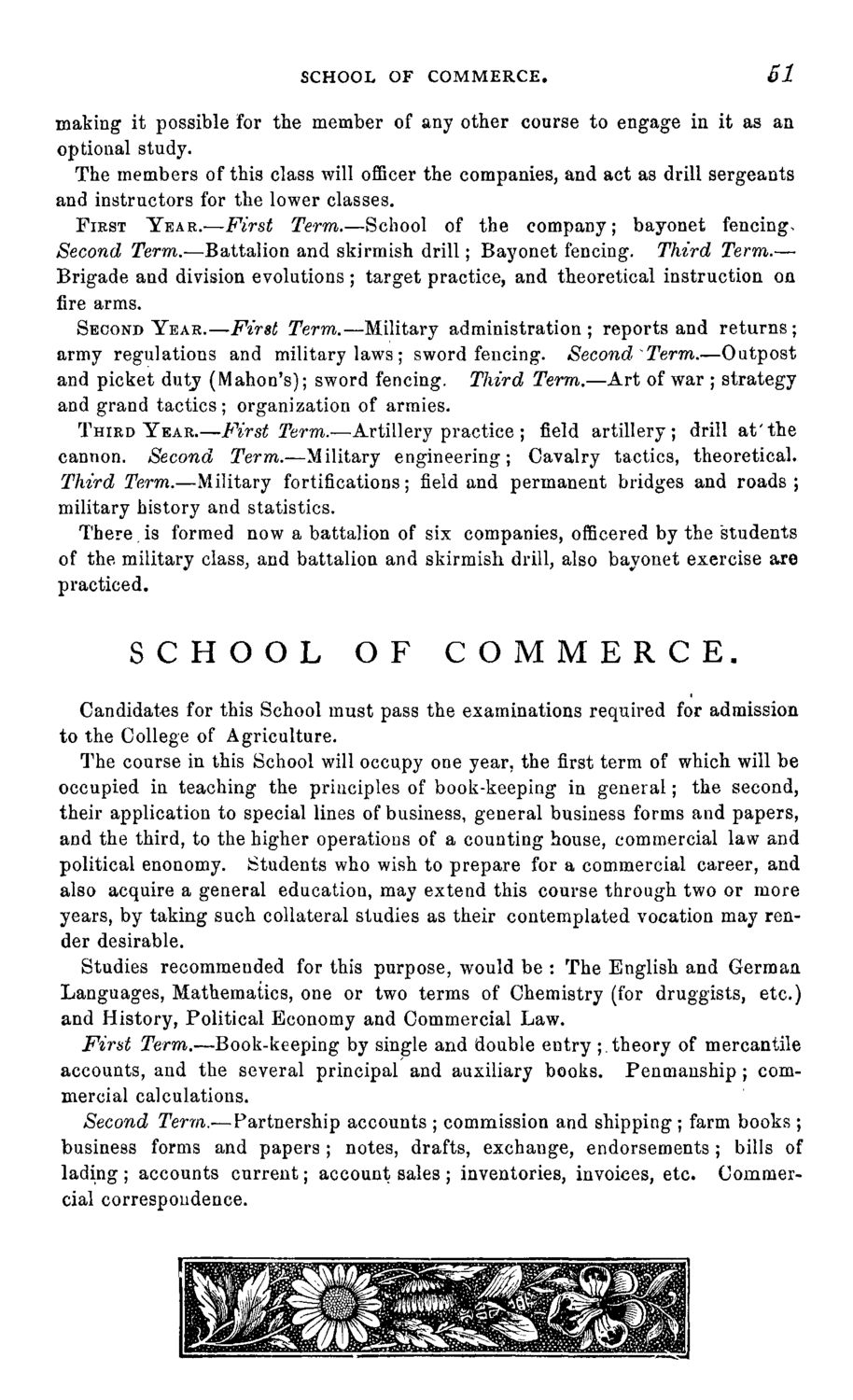| |
| |
Caption: Course Catalog - 1871-1872
This is a reduced-resolution page image for fast online browsing.

EXTRACTED TEXT FROM PAGE:
SCHOOL OF COMMERCE. 61 making it possible for the member of any other course to engage in it as an optional study. The members of this class will officer the companies, and act as drill sergeants and instructors for the lower classes. FIRST YEAR.'—First Term.—School of the company; bayonet fencing. Second Term.—Battalion and skirmish drill; Bayonet fencing. Third Term.— Brigade and division evolutions ; target practice, and theoretical instruction on fire arms. SECOND YEAR.—First Term.—Military administration; reports and returns; army regulations and military laws ; sword fencing. Second ' Term.—Outpost and picket duty (Mahon's); sword fencing. Third Term.—Art of war ; strategy and grand tactics; organization of armies. THIRD YEAR.—First Term.-—Artillery practice ; field artillery; drill at'the cannon. Second Term.—Military engineering; Cavalry tactics, theoretical. Third Term.—Military fortifications; field and permanent bridges and roads ; military history and statistics. There is formed now a battalion of six companies, officered by the "students of the military class, and battalion and skirmish drill, also bayonet exercise are practiced. SCHOOL OF COMMERCE. Candidates for this School must pass the examinations required for admission to the College of Agriculture. The course in this School will occupy one year, the first term of which will be occupied in teaching the principles of book-keeping in general; the second, their application to special lines of business, general business forms and papers, and the third, to the higher operations of a counting house, commercial law and political enonomy. Students who wish to prepare for a commercial career, and also acquire a general education, may extend this course through two or more years, by taking such collateral studies as their contemplated vocation may render desirable. Studies recommended for this purpose, would be : The English and German Languages, Mathematics, one or two terms of Chemistry (for druggists, etc.) and History, Political Economy and Commercial Law. First Term.—Book-keeping by single and double entry ;. theory of mercantile accounts, and the several principal and auxiliary books. Penmanship ; commercial calculations. Second Term.-—Partnership accounts ; commission and shipping ; farm books ; business forms and papers ; notes, drafts, exchange, endorsements; bills of lading ; accounts current; account sales ; inventories, invoices, etc. Commercial correspondence.
| |